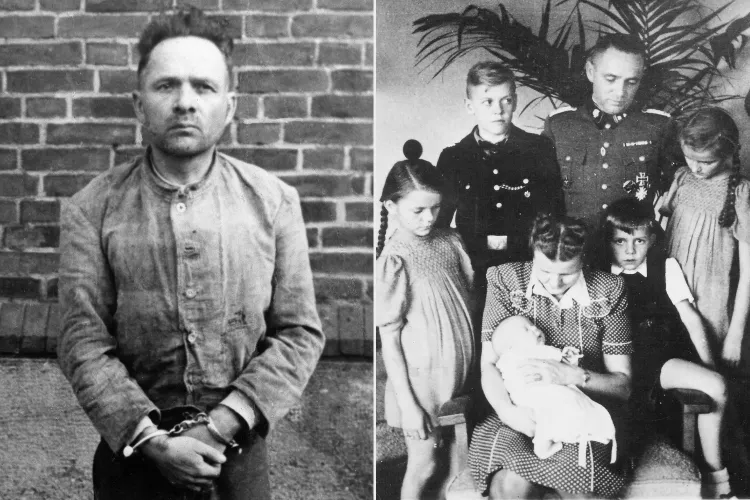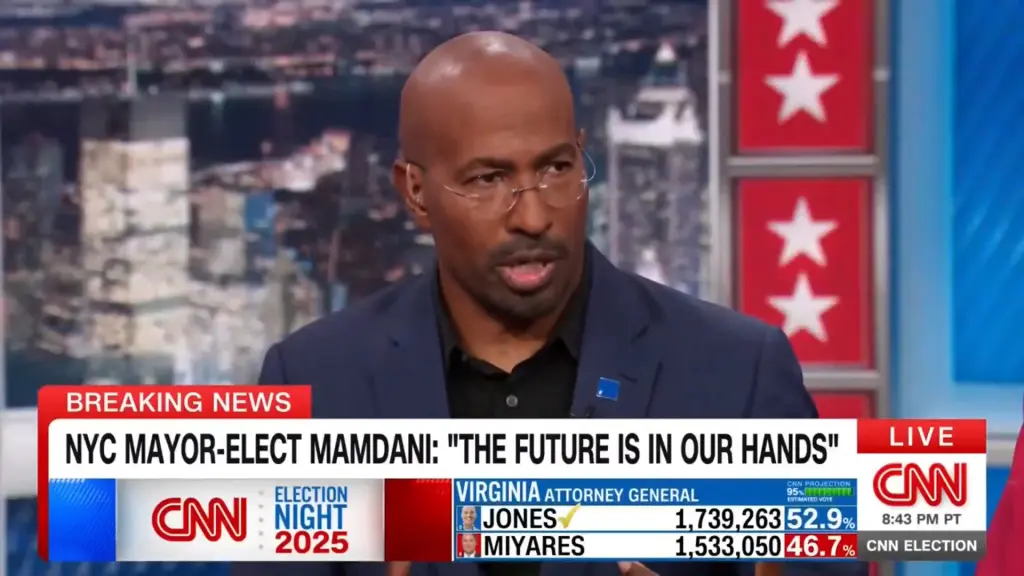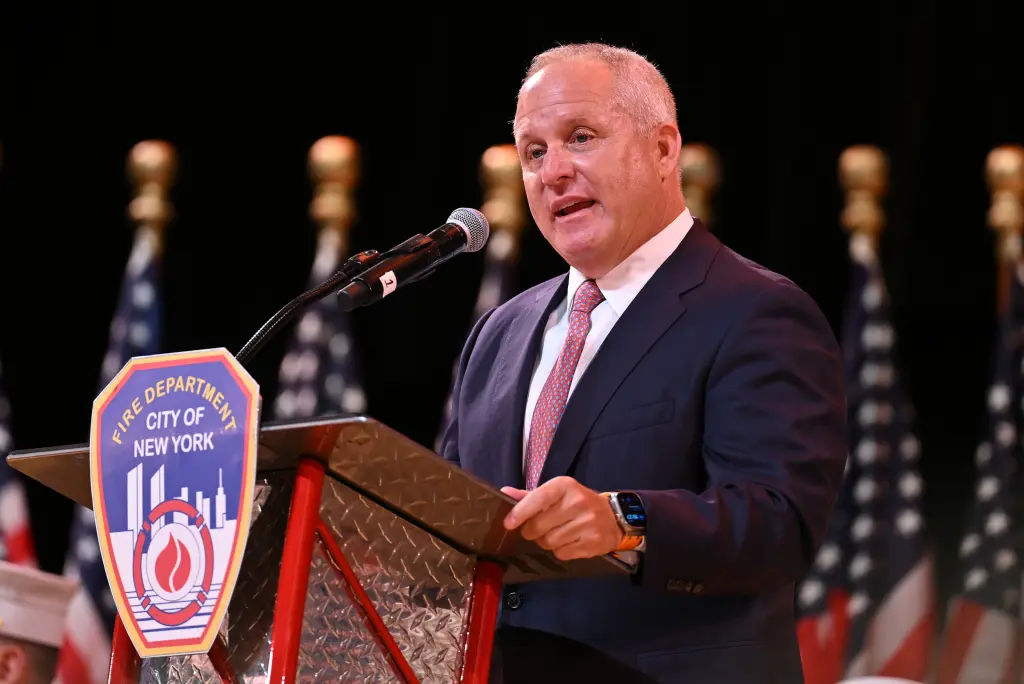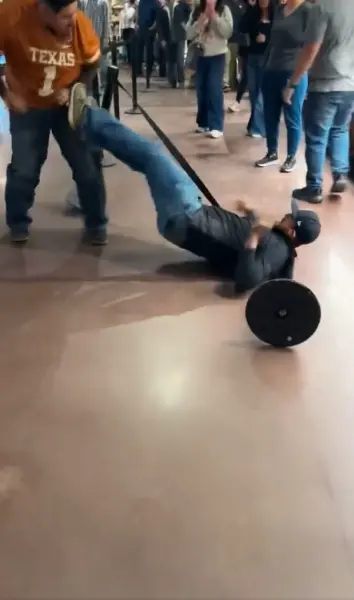Family Hid the Truth About Nazi Commandant Rudolf Höss for Decades — Now His Grandson Is Speaking Out to Confront His Legacy
For more than seven decades, the name Rudolf Höss has remained one of the most chilling in modern history. As the longest-serving commandant of Auschwitz, he oversaw the mass murder of over a million people, most of them Jews, during one of humanity’s darkest chapters. Yet for generations, his descendants lived under the weight of that name — a name that carried both silence and shame. Now, one member of his family has decided that silence is no longer acceptable.
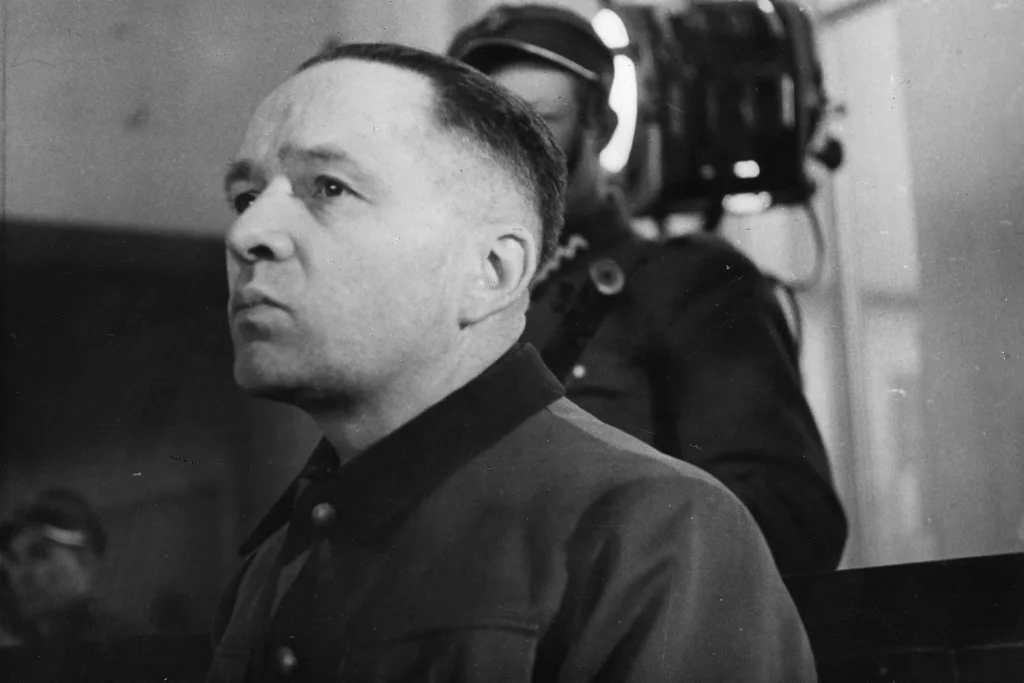
In a powerful and deeply emotional journey, Höss’s grandson has chosen to step into the light and share the story his family avoided for years. Speaking publicly, he has described the pain of discovering who his grandfather really was, and the moral struggle that followed. For most of his early life, the family avoided any mention of the past. Photographs were hidden, questions were deflected, and the horrors of Auschwitz remained a forbidden subject. To the outside world, they were simply another German family rebuilding after the war — but behind closed doors, they lived in the shadow of unimaginable guilt.
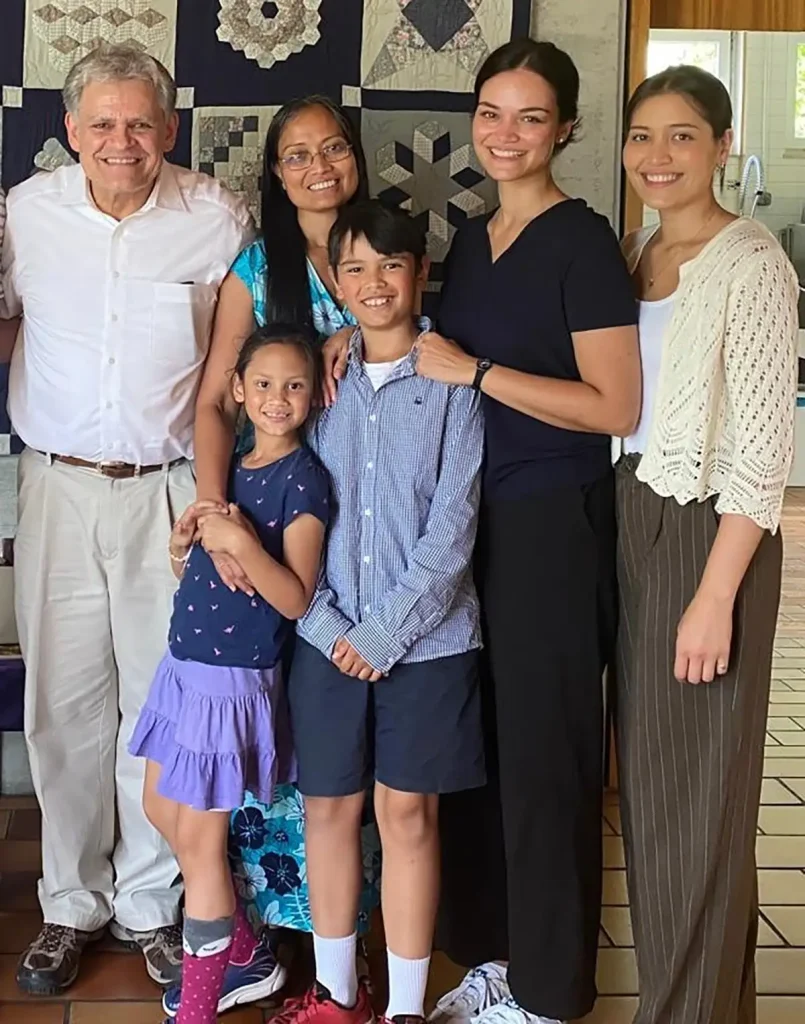
Rudolf Höss was not a nameless officer among many. He was the architect of industrialized death. Under his command, Auschwitz became the largest and most lethal of all concentration camps. Höss implemented the use of Zyklon B gas in mass executions and meticulously managed the logistics of extermination. After the war, when he was finally captured, he confessed in shocking detail to his crimes, providing one of the most complete accounts of how the Holocaust was carried out. In 1947, he was tried, convicted of crimes against humanity, and hanged near the very grounds of Auschwitz — a grim symbol of justice at the site of so much suffering.
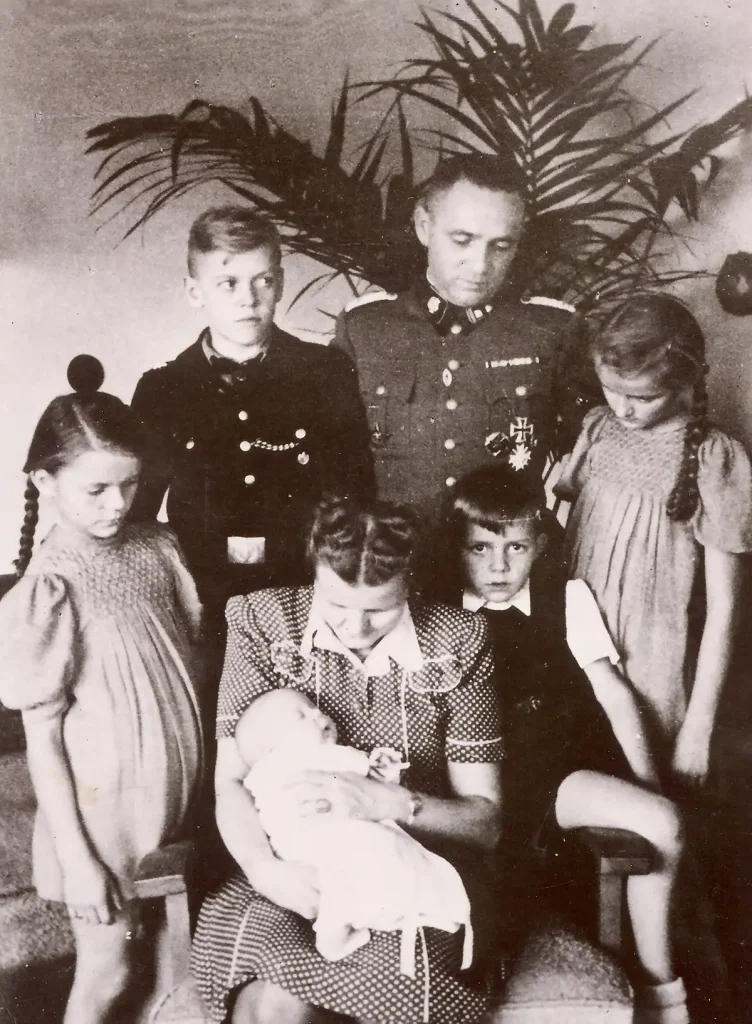
But for his family, the aftermath was just beginning. In postwar Germany, the Höss name was synonymous with evil. His children were bullied and ostracized, his wife tried to disappear into anonymity, and future generations grew up under an unspoken rule — never talk about it. It was as if acknowledging the truth would reopen wounds too deep to heal. The grandson, however, came to realize that denial was its own form of imprisonment.

In recent years, he has dedicated himself to educating others about what happened — not to defend his grandfather, but to make sure the truth is never forgotten. He visits schools, museums, and memorial sites, speaking candidly about the burden of his lineage and the importance of facing history without fear or excuses. “I cannot change what he did,” he once said in an interview. “But I can change how I live with it. Silence helps no one.”
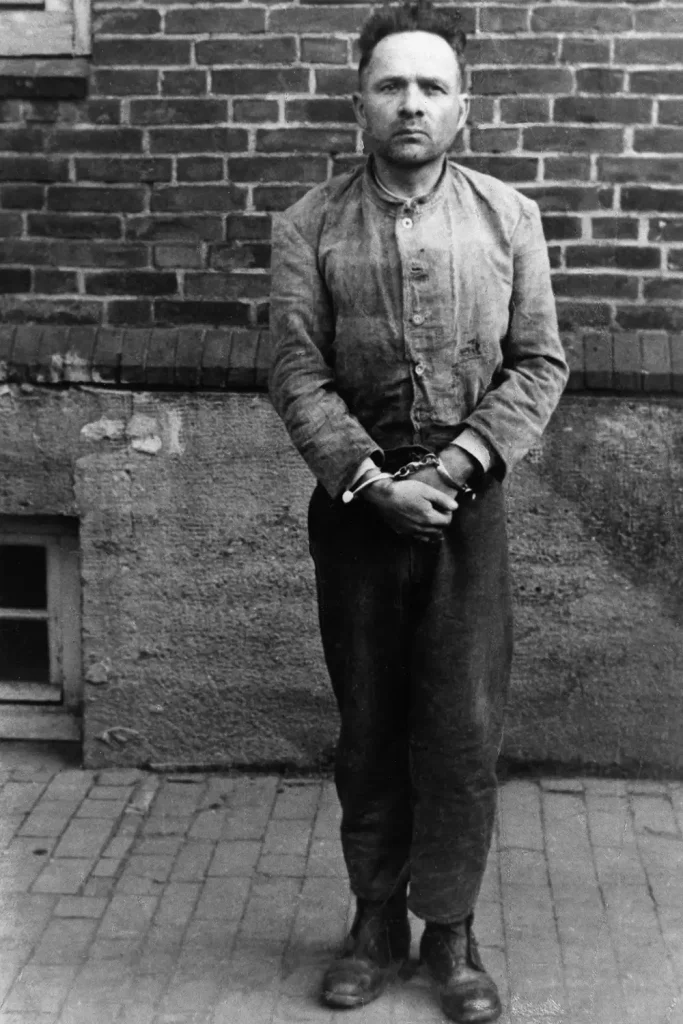
His courage stands in stark contrast to the secrecy that once defined his family. Through him, the story of Rudolf Höss has transformed from one of inherited guilt into a lesson about moral responsibility. He reminds people that remembrance is not about punishment — it’s about ensuring that such cruelty can never be repeated.
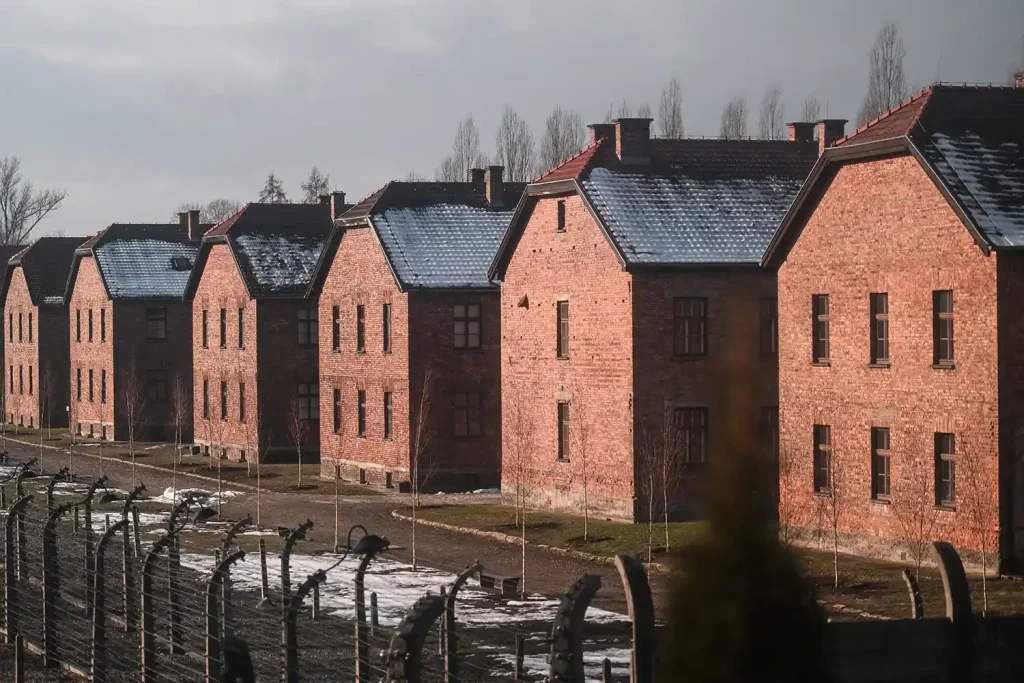
Today, when visitors walk through the haunting ruins of Auschwitz, they often see reminders of the countless lives lost there. But for the grandson of Rudolf Höss, every visit is a confrontation with his own bloodline — a personal reckoning with the past, and a choice to build a future rooted in truth, not denial. His message is clear and powerful: the only way forward is to face what came before, no matter how painful it is to remember.
